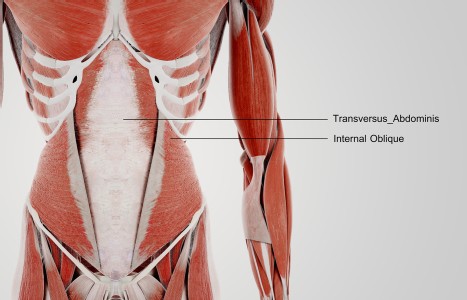TrA-2, my primary needle location, I needle 95% of the time and I think it works the best. You’ll know you have the right point location when you discover the muscle twitching when applying electric stimulation.
Report From the American Public Health Association
More than 13,000 delegates attended the American Public Health Association's (APHA) annual meeting in Washington, D.C., from Nov. 3-7. The theme of this year's meeting was "Politics, Policy and Public Health." Keynote speakers included Julie Gerberding, director of the Centers for Disease Control and Prevention, and Sanjay Gupta, who spoke on behalf of Lance Armstrong.
The APHA represents a wide variety of interests including community health advocacy, environmental concerns, gerontological health, maternal and child health, occupational safety, health law, international health and complementary health practices. The group within the APHA that specializes in integrative health issues is called the Alternative and Complementary Health Practices (ACHP) special interest group. This includes acupuncturists, researchers and health educators, representing areas such as integrative oncology, massage, yoga, tai chi, qigong, herbal medicine and nutrition.
Members of the ACHP special interest group organized more than 60 presentations that included a wide variety of modalities and practices. Alan Trachtenberg, who co-founded the group and served as co-chair, was pleased with the ACHP's growth and level of professionalism. Dr. Trachtenberg convened the 1997 National Institute of Health's Consensus Conference on Acupuncture and is a longtime supporter of the acupuncture community. Indicating his optimism about the growth of interest about CAM's relevance to public health, he encouraged acupuncturists to become involved on the national level and "lend expertise and vision to the public health agenda."
Presentations were grouped according to the following categories: herbal and dietary health practices; education and integrative health; traditional healing and cultural competence; women and minority populations' use of CAM; chronic disease and cancer; research approaches and evidence; and health promotion. Although the volume of interesting information presented in these workshops is more than we can address in this article, we'll attempt to highlight some of the information that may be most salient for colleagues of the acupuncture community.
Tony Kuo and Michael Johnson of the UCLA Center for East-West Medicine discussed their ongoing study on herbal prescription patterns among licensed acupuncturists.1 Their work analyzes trends in biomedical training, coordination of care and shared professional standards. Relevant policy questions have been raised by the acupuncture and medical communities regarding the role and importance of biomedical training. Knowledge about the risk of adverse events related to herb-drug interactions is crucial, as well as concerns regarding use of herbal prescriptions and unregulated self-care and whether patients disclose their use of herbs to their physicians. The study also addressed the issues of provider education, postgraduate training, ensuring the quality of training and developing competency-based curricula. Kuo also provided updates from the Licensed Acupuncture Collaborative (LAC) study in California, which is assessing herbal prescribing behavior for the conditions of asthma, emphysema and carpal tunnel syndrome. Kuo stressed the importance of promoting coordination of integrated care and provider communication.
Yang Yang from the Department of Kinesiology and community health at the University of Illinois at Urbana-Champaign, presented the results of his group's study about the effects of tai chi and qigong on the immune function of older adults2 and also on a randomized controlled trial on the impact of tai chi and qigong on balance and equilibrium in older adults.3 The first study demonstrated that 20 weeks of training in tai chi and qigong can increase the antibody response to the influenza vaccine. Although the study was a small pilot with 50 participants (average age 77), the investigators found favorable evidence of a protective immune response among the group that did the tai chi and qigong exercises. The second study examined two of the mechanisms by which tai chi and qigong may influence balance - neurological organization of vestibular information and increased base of support provided by making a wider stance. Even a short course of two months of training may positively impact balance and equilibrium for older adults.
Quan Yin Healing Arts Center in San Francisco was represented by Carla Wilson, acupuncturist and executive director. Her presentation focused on the feasibility of conducting CAM research in a community-based setting.4 This organization has successfully provided acupuncture treatment for 24 years to people living with HIV/AIDS and serves as an inspiration to providers who desire to make treatment accessible to underserved populations.
Bei Chang discussed some of the recent work of her group from Boston University School of Public Health and Pathways to Wellness. The group has just completed a study sponsored by the U.S. Department of Defense and Samueli Institute on evaluating the effects of acupuncture and relaxation for homeless veterans who have substance use issues.5 The project was conducted at the Veterans Administration Hospital site in Bedford, Mass. Acupuncture treatment was well-received in this study and many of the participants wanted to continue receiving acupuncture even after the study was completed. Although the analysis is still in process, preliminary evidence suggests that the veterans receiving acupuncture had favorable results in terms of reduction in cravings for alcohol, as well as in certain factors related to their quality of life.
Work in progress was presented on the clinical efficacy of Chinese herbal medicine for treating idiopathic thrombocytopenic purpura (ITP).6 This investigative team was headed by Ju-Tzu Li and Wen-Shuo Wu from Taiwan, and Prasad Vinjamury from the Southern California University of Health Sciences. Additional information on this presentation as well as the entire slate of ACHP workshops from the conference can be accessed through the Web site of the American Public Health Association (www.apha.org/meetings).
The high levels of clinical work and research presented at this conference indicate that acupuncture and traditional Asian medicine have earned their places at the table of public health in the U.S. Providing care and improving the public's health have become achievable goals for the acupuncture community and our challenge is to creatively demonstrate that health care that includes wellness is a right not a privilege.
References
- Kuo T, Johnson M. "Does biomedical training predict higher coordination of care by licensed acupuncturists?" Session 3003.1; www.apha.org/meetings.
- Yang Y, Verkuilen J, Rosengren KS, et al. Effect of combined taiji and qigong training on balance mechanisms. Med Sci Monit, 2007-08;13(8):CR339-348.
- Wilson C, Cohen M. "Feasibility of complementary and alternative medicine research in a community-based setting." Session 4004.0; www.apha.org/meetings.
- Chang BH, Sommers E. "A pilot randomized controlled trial of acupuncture and relaxation response on homeless veterans with substance abuse." Session 3033.1; www.apha.org/meetings.
- Li JT, Vinjamury SP, Wu WS. "Clinical efficacy of Chinese herbal medicine in the treatment of chronic idiopathic thrombocytopenic purpura (ITP)." Session 2041.1; www.apha.org/meetings.


